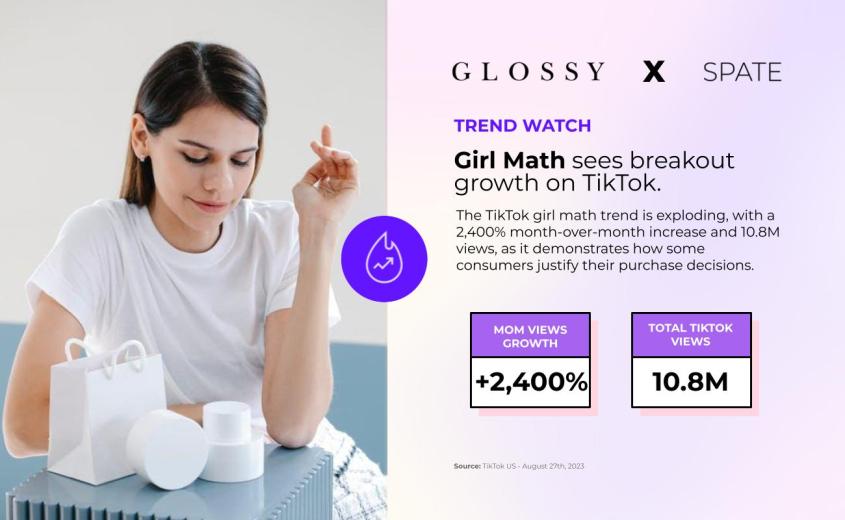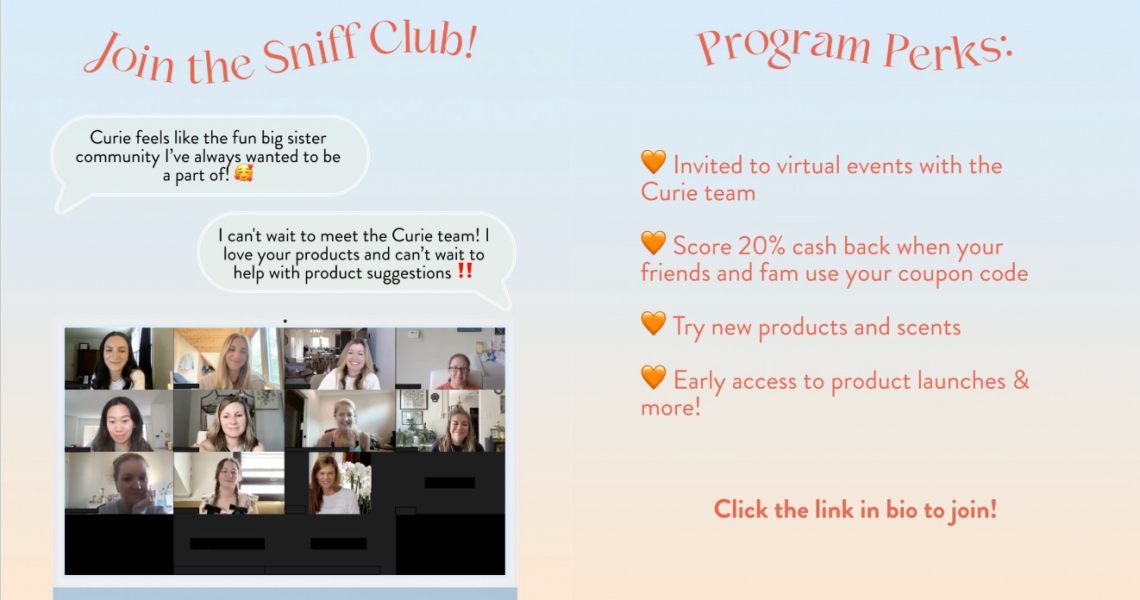To receive the Glossy Pop newsletter in your inbox every Friday, click here.
All products featured on Glossy Pop are independently selected by our editorial team. However, when you buy something through our retail links, we may earn an affiliate commission.
A brand’s community has never been more important. The community — encompassing customers, followers, and others who engage with its content and messaging — has become the lifeblood of a brand. What’s more, engaged customers are likely to attract more customers. In an August survey of its 74,000 Instagram followers, brand-discovery platform Thingtesting showed that “close friends and family” are the most powerful influences on the purchases they make. Influencers came in fourth place.
Though influencers aren’t going anywhere, there is a rising fatigue with their excess of unboxings, lavish press trips and exaggerated claims. See: Tarte’s Dubai trip at the start of the year and Mikayla Nogueira’s recent “mascara gate” scandal. Who consumers now trust are friends, family and enthusiastic customers who aren’t influencers by occupation.
As such, savvy brands are increasingly working overtime to capture the attention and loyalty of everyday customers, including by offering them a sense of community in increasingly creative ways.
This week, a look at a new strategy in which brands bring customers into the fold before products are launched, sending them lab samples and taking their feedback into consideration during the product formulation process.
In June 2022, personal-care brand Curie formed the “Sniff Club.”
The concept took shape as the result of an email sent by founder Sarah Moret. In the wake of a March 2022 “Shark Tank” appearance, the brand was inundated with new customers, many of whom “liked Curie not only for our [deodorant and body care], but also for our story,” Moret said. So she started an email series, titled “Founder Fridays,” in which she’d share behind-the-scenes glimpses of what Curie was working on, as well as bits of her life: her wedding, a trip she’d taken, a conference she’d spoken at. These emails were well-received, sometimes eliciting hundreds of replies. In one, Moret included a note at the bottom of the email, sharing that her team had been testing a new scent and was looking for additional feedback on it. An outpouring of responses came through, and Curie’s “Sniff Club” was born.
The Club started with 50 members, with people chosen based on “the thoughtfulness of their response,” Moret said. She noted that many sent “paragraphs-long emails telling us how big of an impact Curie had on their lives — all these personal, cool stories.”
For its two most recent scents, Coconut Nectar and Juniper Eucalyptus, the brand sent around 30 Sniff Club members lab samples to test. They then weighed in via Zoom discussions with the brand. Prior, the Club inspired Curie to change its deodorant packaging — the cap is now “less flimsy,” based on feedback.
The Sniff Club has since grown to almost 1,000 members. Through a form on the brand’s website, interested customers can apply to join. Curie’s customer support team also invites people to join. But as the number of available samples is consistently small, sampling is offered to Club members on a first-come, first-served basis. Curie typically sends new products to Sniff Club members 3-4 months in advance of their launch dates and does not require them to sign NDAs.
For its part, skin-care brand Dieux first sent lab samples to members of its community in 2021, in advance of the May 2021 launch of its first product, the Deliverance serum. “We used to do everything manually, but then we launched on Ty Haney’s play-to-earn community platform, TYB,” said the brand’s co-founder and creative director, Marta Freedman. “One of our goals with joining was to help scale our community testing program so it was easier to manage.” Upon the brand’s launch on TYB, over 1,000 people joined its community in four minutes. The brand then opened up applications to join its testing program.
Dieux has not used community feedback to change a product formulation, but rather to consider how a product should be marketed, Freedman said: “At Dieux, we’re big fans of feedback loops, and we always want to make sure we are communicating as best we can.”
Of the importance of such a strategy, she said. “We try to live our values, and we believe that products should do what they say they are going to do. While all of our products are clinically vetted, the co-sign from the people who actually buy them is the best seal of approval you can get.” Freedman noted that she hopes Dieux, which has 108,000 followers on Instagram, will increasingly connect with its community.
Fragrance brand DedCool, which launched in 2016, has long sent lab samples to friends and family, but it’s now expanding its strategy to include community members. The brand frequently interacts with its 54,000 Instagram followers via DM and also uses Instagram’s Close Friends feature to share sneak peeks of upcoming products. It will tap about 50 people to receive lab samples of an upcoming fragrance, created in partnership with the brand’s key retailer. Those people will be selected based on their number of interactions with the brand, other social media analytics and “how dedicated they are to the brand,” said founder Carina Chazanas, who goes by Carina Chaz.
The brand’s Xtra Milk fragrance is a stronger version of its Milk fragrance, based on consumer feedback. It is now the brand’s best-seller. “Why wouldn’t we speak directly to the people who you know are buying our products?” Chaz said of the strategy. “And what can we do to leverage them and celebrate them?”
Spate Trend Watch: Girl math

The TikTok trend of “girl math” has become a sensation, with a 2,400% month-over-month increase in TikTok views during the month ending August 27. The trend offers a glimpse into how some people rationalize their shopping habits. It encompasses a variety of approaches, each with its own comedic charm.
One strategy involves breaking down the cost of an item into its yearly expense, resulting in a more palatable justification for splurging on higher-priced products. Another take centers on not letting a good deal go to waste. The idea is that, if a sale is happening, passing it up may feel like “losing money.” Using rewards points to score freebies from stores like Sephora and Ulta is another tactic. And another deems purchases made for pets, friends or family members as exempt from personal expenditure calculations.
“Even though the girl math trend is fun, it’s important to stay mindful about spending and the implications of this trend. While we’re all enjoying the laughs, brands shouldn’t underestimate the intelligence of their consumers. They can use this trend as an opportunity to show how their products bring value that makes the cost worthwhile,” said Yarden Horwitz, co-founder of Spate.
Inside our coverage
Merit Beauty owes its viral eyeshadow launch to simplicity
Pinterest’s new body technology aims to increase plus-size representation
Indie luxury beauty brands are searching for the ideal e-tailer ‘launchpad’
Reading list
The Victoria’s Secret show could’ve been an email
Created for clicks — what it takes for fashion and beauty brands to generate billion-dollar buzz
Barneys New York was the coolest department store. What is it now?




